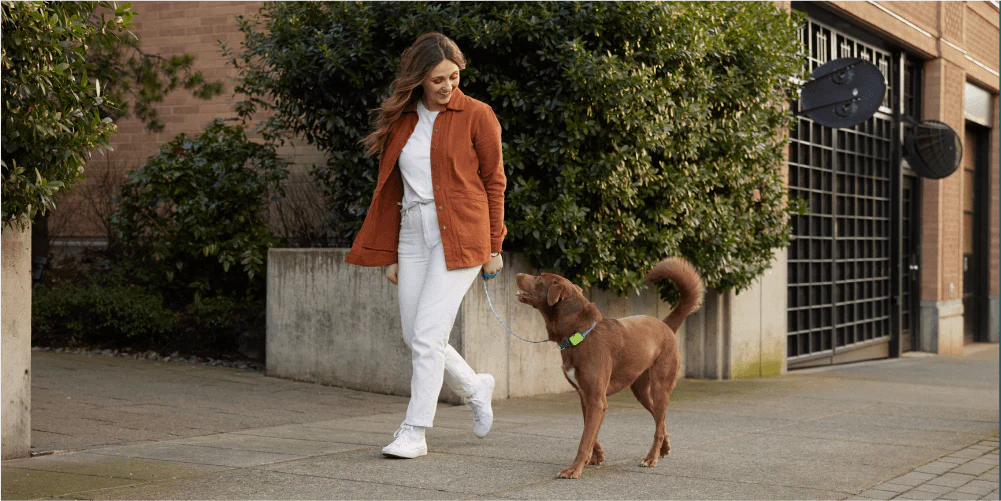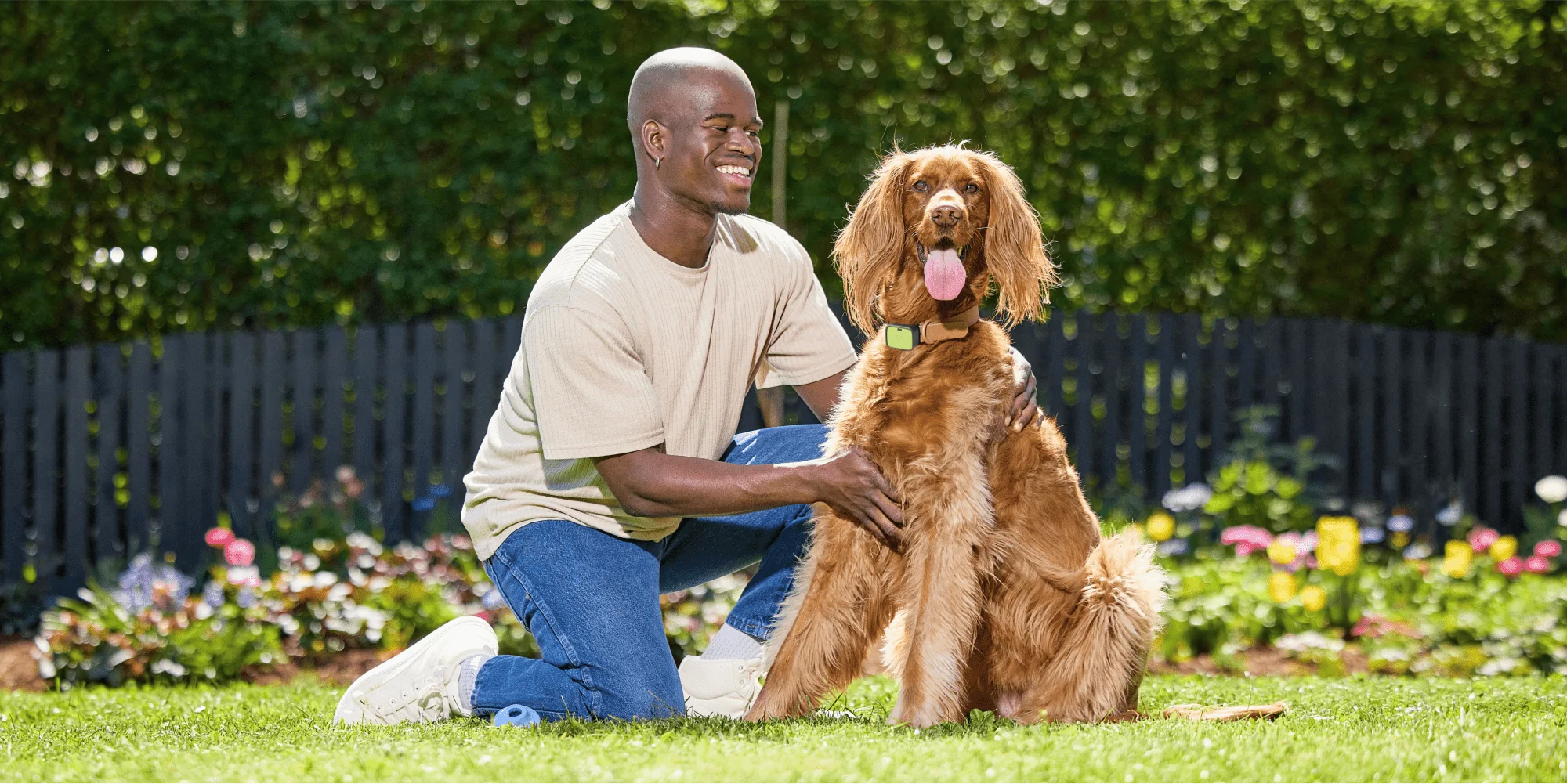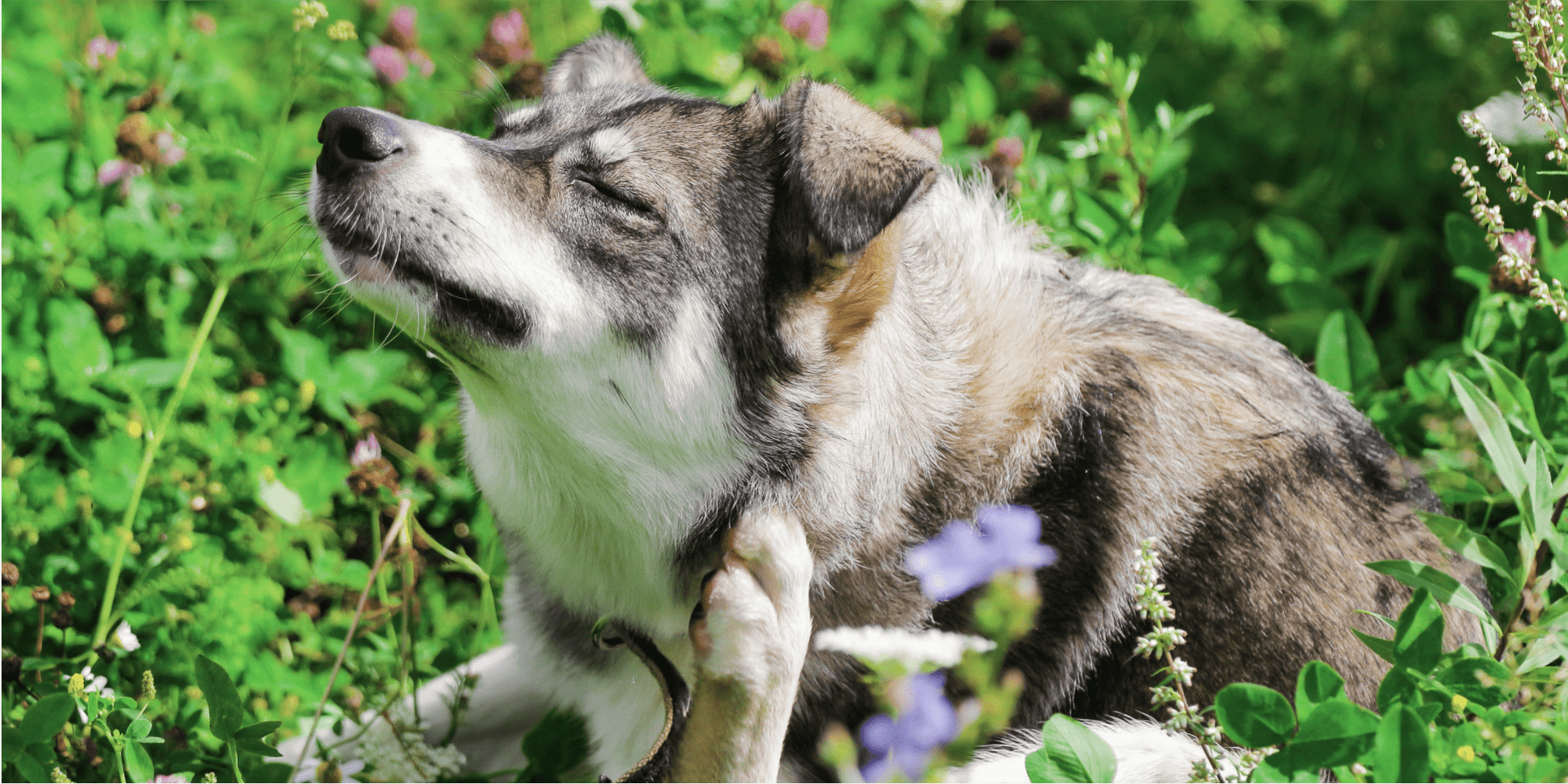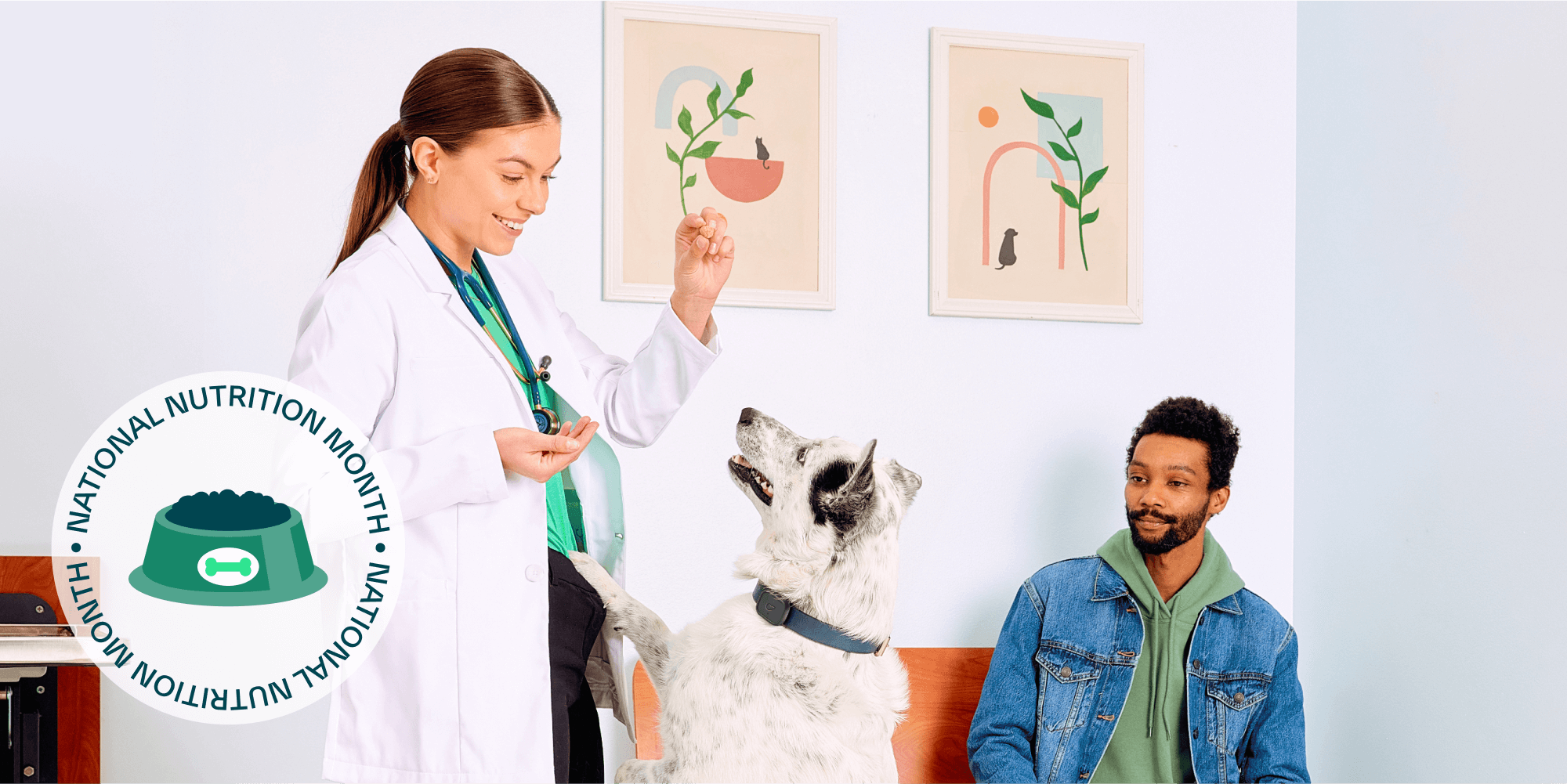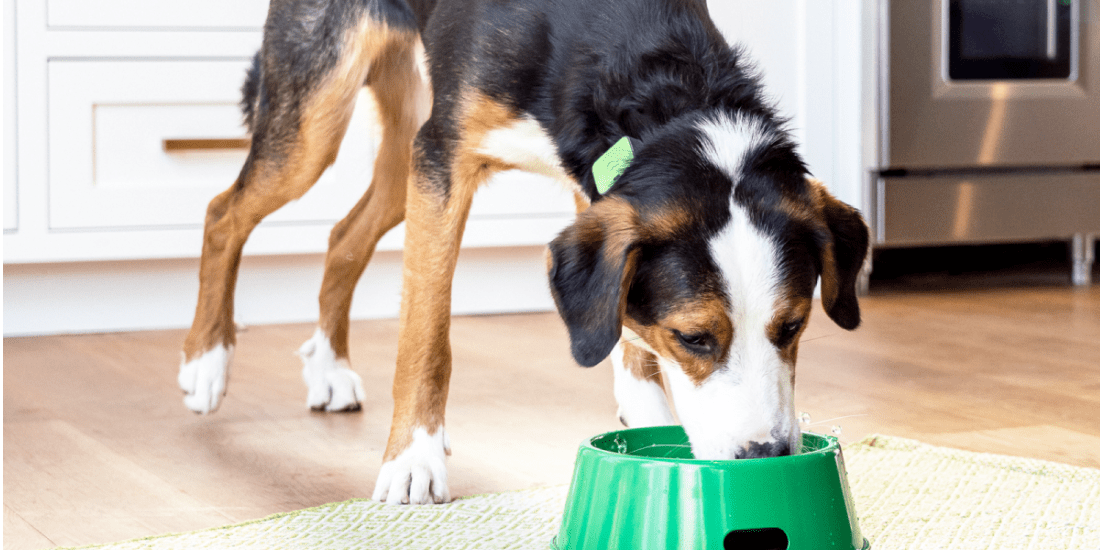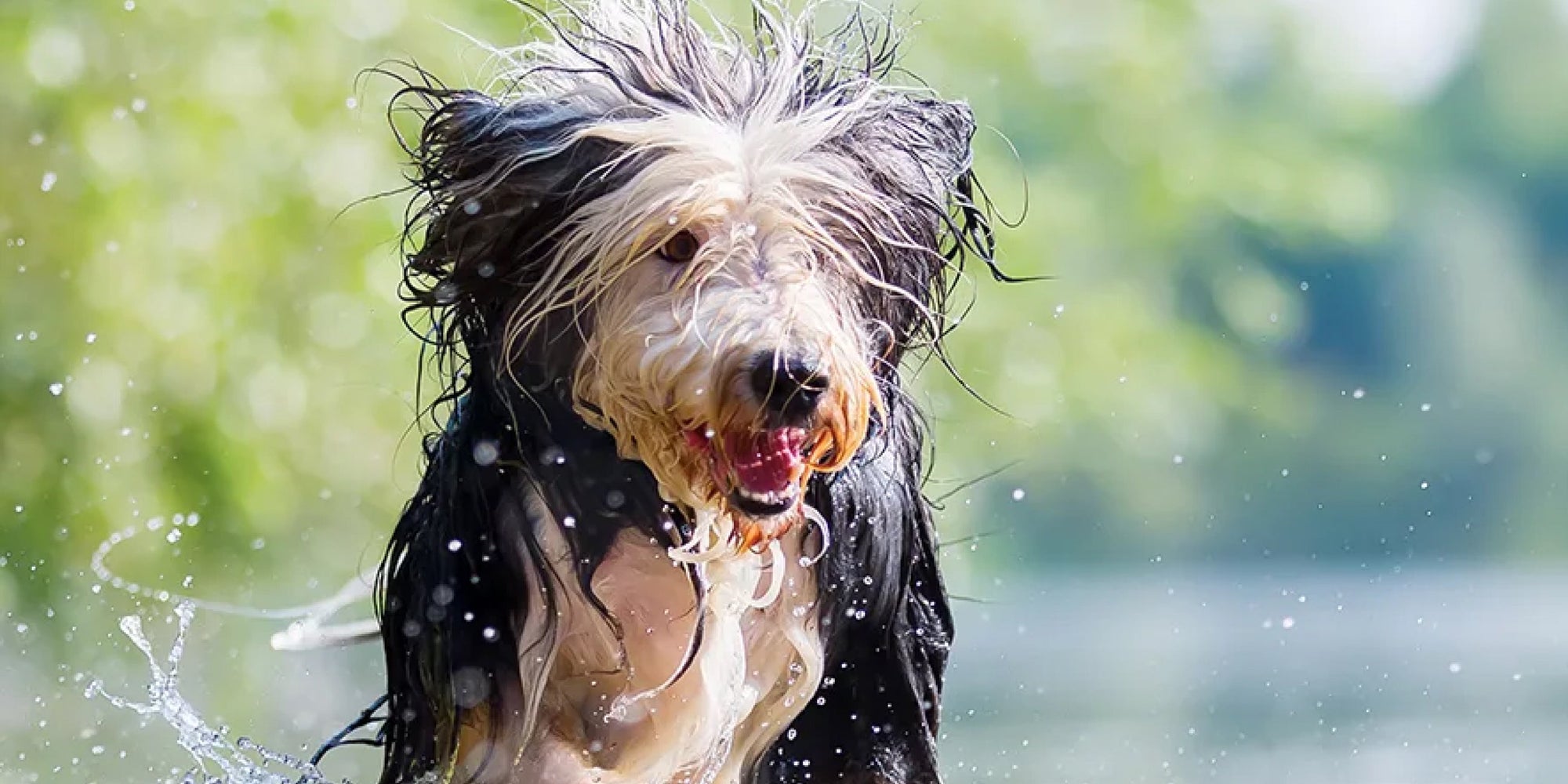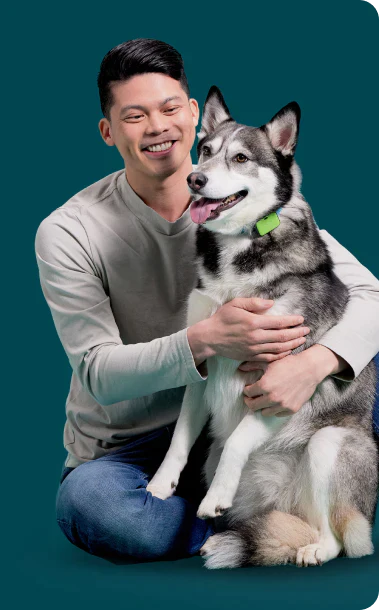Dog Hydration Guide: How much water should my dog drink?

Water is essential for your dog’s health and wellbeing. It keeps your dog hydrated, helps regulate body temperature, aids in digestion, flushes toxins and promotes organ function.
You know water is important and keep the water bowl full but wonder, “Is my dog drinking too much water?” or “Is my dog drinking too little water?” Whistle smart devices can help.
The devices monitor water intake, sending alerts if your dog starts spending more time lapping up cool water or their visits to the water bowl have declined.
How much water should dogs drink daily?
On average, dogs need about one ounce of water for every pound of body weight. Your 10-pound Chihuahua will need about 10 ounces of water per day while your 100-pound Irish Wolfhound will need about 100 ounces of water per day but there are several factors that influence how much water dogs drink.
Puppies, pregnant dogs and nursing moms will drink more water than adult dogs. Temperature and activity levels also play a role in their need for hydration and it’s common for dogs to drink more after exercise, especially if it’s hot outside.
Changes in your dog’s water intake could also point to health issues like diabetes or a urinary tract infection.
How do you check if a dog is dehydrated?
Your dog is spending less time at the water bowl and you’re worried. Dogs decrease their water intake for several reasons:
Why is my dog not drinking water?
- Sanitation: Your dog might turn their nose up if the water bowl is dirty or the water is filled with dirt and debris. Scrub the bowl and fill it with fresh, clean water to see if it entices your dog to drink.
- Change in diet: Canned (wet) food has a higher moisture content than kibble, allowing dogs to meet some of their hydration needs from their food. Switching your dog from kibble to wet food could lead them to drink less water.
- Dental disease: A dog with a sore mouth, broken teeth or jaw or oral tumors could make it painful or difficult to drink. Use the Ask a Vet feature available through Whistle Health, Health & GPS and Health & GPS+ to talk to a veterinarian if you suspect dental disease or oral injuries could be impacting your dog’s water intake.
- Kidney disease: Nausea is a common symptom of advanced kidney disease and your dog may drink less because it upsets their stomach.
Signs of dehydration in dogs
When your dog doesn’t drink enough water, it increases the risk of dehydration. Look for symptoms like loss of appetite, vomiting, lethargy, panting, dry nose, pale, sticky gums and thick saliva that could signal dehydration and make an appointment with your veterinarian.
Can dogs drink too much water?
When your dog is lapping up water faster than you can fill the bowl, pay attention. Increased water intake could have several causes:
Why is my dog so thirsty?
- Hot weather: Dogs pant to help cool down and all of the extra saliva created during the pant-pant-pant when the weather is hot leads to water loss. When it’s hot outside, your dog is bound to drink more water to stay hydrated.
- Diabetes: Excessive thirst is one of the hallmark symptoms of diabetes. Your dog’s kidneys are forced to work overtime to absorb and filter excess blood sugar, which is excreted in their urine. The added fluid loss triggers increased thirst.
- Hormonal diseases: An imbalance of the hormone cortisol is linked to excess thirst. Both Cushing’s disease, which causes excess cortisol production, and Addison’s disease, which is diagnosed when there is insufficient cortisol production, will cause your dog to drink more water.
- Cancer: Several kinds of cancer, including liver or kidney cancer and cancer of the adrenal, pituitary or thyroid glands can cause increased thirst.
- Medications: Your veterinarian may prescribe medications that cause your dog to drink more water. Common medications that increase thirst include anti-inflammatory drugs, corticosteroids and heart failure drugs.
It’s important for your dog to quench their thirst but drinking too much water could also be dangerous and can even lead to water intoxication.
How Whistle Tracks Dog Drinking
When it comes to how much water should a dog drink a day, no two dogs are alike. Whistle Health, Health & GPS and Health & GPS+ use algorithms to track changes to your dog’s health habits, including increases or decreases in their water intake.
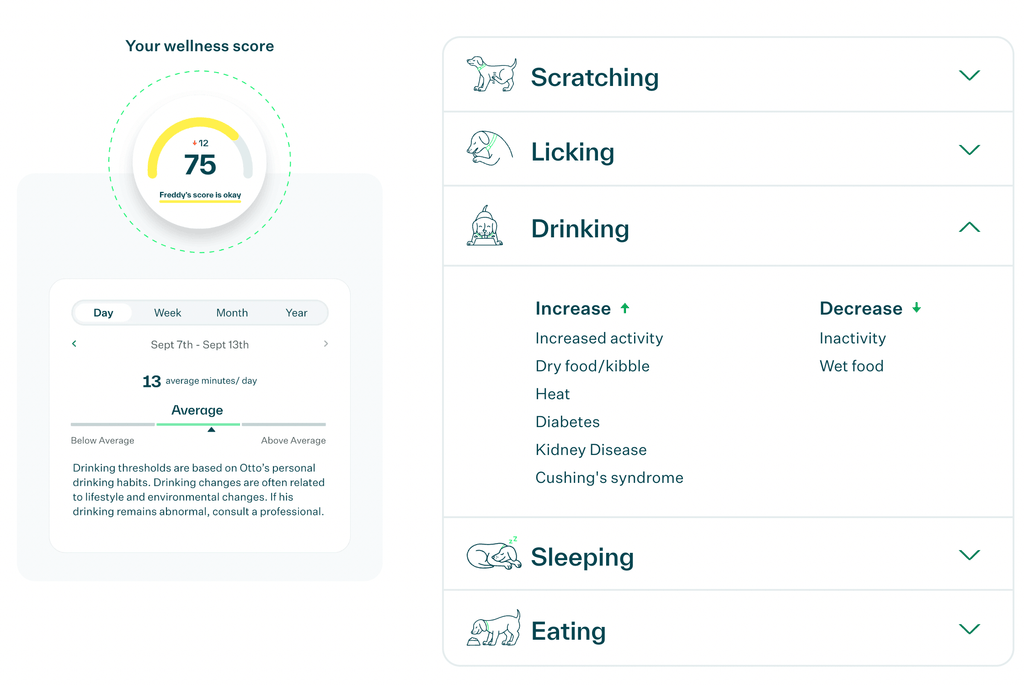
Your Whistle device tracks all of your dog’s health behaviors for the first week to create a personal baseline. Once their normal behaviors are established, Whistle Health, Health & GPS and Health & GPS+ will send alerts when behaviors change from day-to-day.
These personalized insights give you the information you need to talk to your veterinarian about what might be causing your dog to drink more (or less) and how to ensure their continued good health.








